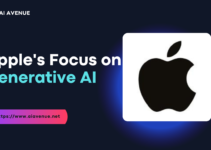Artificial Intelligence (AI) is one of the most exciting and rapidly evolving fields in technology today. From chatbots to machine learning, the possibilities for AI are virtually endless, and every day, new breakthroughs are being made that are changing the way we live, work, and interact with the world around us.
Here, we will explore the latest breakthroughs in AI and how they are shaping the future of our world.
- GPT-3 and Natural Language Processing (NLP)
One of the most significant recent breakthroughs in AI has been the development of GPT-3 (Generative Pre-trained Transformer 3) by OpenAI. GPT-3 is an advanced NLP model that has the ability to generate human-like responses to any input text. This technology has the potential to revolutionize the way we interact with machines, making it possible to have natural and engaging conversations with computers that can understand and respond to human language in real-time.
For example, GPT-3 can be used to create chatbots that are so advanced, they can respond to customer inquiries as if they were a human customer service representative. This can help businesses reduce the workload of customer service representatives and provide faster, more efficient service to customers.
- Computer Vision and Object Recognition
Another breakthrough in AI is in the field of computer vision, which has enabled machines to recognize and identify objects in real-time. This technology has numerous applications, from self-driving cars to automated surveillance systems. For instance, self-driving cars use computer vision to identify pedestrians, other vehicles, and road signs, and make decisions based on that data. Automated surveillance systems can detect unusual behavior or objects in a given area and alert security personnel or law enforcement.
- Reinforcement Learning
Reinforcement learning is an area of machine learning that allows machines to learn from their own experience. In this approach, machines are rewarded for taking actions that lead to positive outcomes and penalized for actions that lead to negative outcomes. This helps them to improve their decision-making abilities over time.
Reinforcement learning has numerous applications, from optimizing supply chains to managing financial portfolios. For instance, companies can use reinforcement learning to optimize their inventory management by training machines to order just the right amount of inventory at the right time, thus reducing waste and maximizing profits.
- AI for Healthcare
AI is also making significant strides in the healthcare industry. For example, AI-powered diagnostic tools can analyze medical images to identify signs of disease that may not be visible to the human eye. This can help healthcare professionals to diagnose conditions more accurately and at an earlier stage, leading to better outcomes for patients.
AI can also be used to develop personalized treatment plans based on a patient’s unique genetic profile, medical history, and lifestyle. This can help to improve treatment outcomes and reduce the risk of adverse events.
- AI for Education
Finally, AI is also being used to transform the way we approach education. AI-powered tutoring systems can provide students with personalized learning experiences that are tailored to their individual needs and learning styles. This can help to improve learning outcomes and reduce the achievement gap between students.
AI can also be used to analyze student data to identify areas where students are struggling and provide targeted interventions to help them improve their performance. This can help to ensure that every student has access to the resources and support they need to succeed.
Conclusion
In conclusion, AI is transforming the world around us, and the possibilities for this technology are virtually endless. From chatbots and natural language processing to computer vision and reinforcement learning, AI is making it possible to automate processes, improve decision-making, and provide more personalized services and experiences to customers and patients.
AI Avenue


